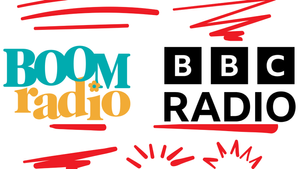Boom Radio - a UK-wide commercial radio station targeted at the 'boomer' generation - has urged its listeners to write to the BBC and their MPs to oppose the plan to launch a new Radio 2 spin off station that will play pop music from the 1950s, 1960s and 1970s. Because that's what Boom Radio does already.
In a statement on its website, the commercial station says, "Boom Radio was created by a group of individuals who felt the BBC had stopped caring about the interests of older listeners. We got together, invested our own cash, worked exceptionally long hours and created something of which we are very proud".
"The BBC's plans will generate a new unexpected competitor to Boom", it adds, which could negatively impact on the commercial station's listener numbers and listening hours. "Depending how serious the damage and the economic climate”, it goes on, “it could even place the existence of Boom Radio in doubt".
The BBC announced plans last month to launch four new stations on the DAB digital radio network. Two of those stations will be decade focused, with a Radio 1 spin off playing music from the 2000s and 2010s, and the Radio 2 spin off that will compete with Boom Radio.
BBC bosses say that the proposed new stations will allow the licence fee funded broadcaster to "better meet the expectations of listeners" and offer more choice "especially to those who currently are underserved by the BBC".
However, the plans have been widely criticised by the commercial radio sector, with opponents pointing out that there are plenty of decade specific music stations provided by commercial broadcasters, which the BBC will now compete with.
Commercial radio trade group RadioCentre said at the time that the BBC was "attempting to compete directly with commercial radio stations, interfering with the market and failing to provide distinct public value". Media regulator OfCom, it added, "should reject these proposed market interventions that would just offer duplicate services and not deliver against the BBC’s obligations, at the same time as harming commercial innovation".
One of the founders of Boom Radio, radio industry veteran Phil Riley, subsequently told the Telegraph, “When the BBC gets the bit between its teeth it can steamroller the opposition. We’ve seen it on multiple occasions over the years, both on TV and radio. It’s typical. They wait until someone else has a good idea and then they say ‘Well that’s a good idea, we’ll do it’".
The post on the Boom Radio website continues, "whilst many of us support the BBC's excellence in many areas, we do not feel it should be investing licence fee payers' money in creating a very similar radio station in a way which could seriously damage Boom. We are thoroughly puzzled about spending money on this when the BBC has chosen to seriously reduce BBC local radio services".
When announcing its planned new radio stations, the BBC explained "the plans are subject to the relevant regulatory approvals, including a 'public interest test', a process which the BBC will start in the coming weeks and is expected to run until the end of 2024".
It's as part of that public interest test that Boom Radio is urging its listeners to contact the BBC to oppose the planned Radio 2 spin off. "It would also be worthwhile writing to your MP", the commercial station adds.

